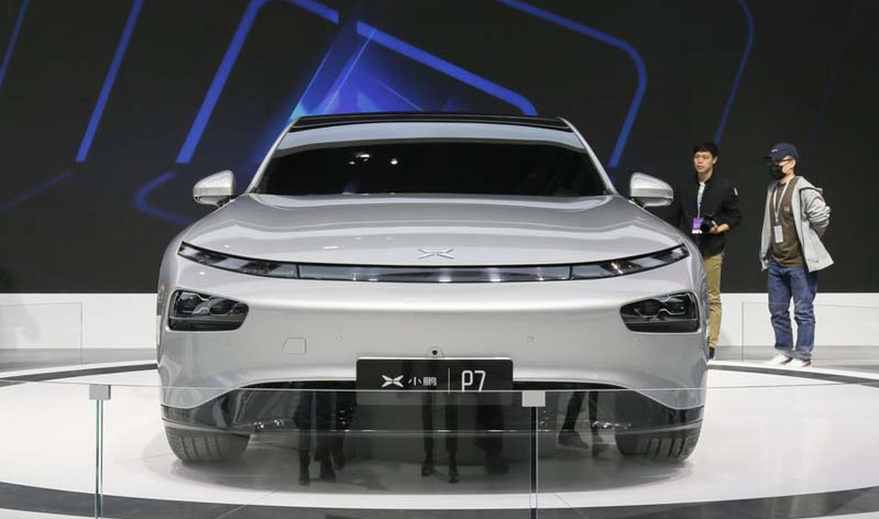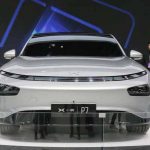China’s EV startup Xpeng to acquire Didi’s electric vehicle unit in a deal valued at around $744 million

Chinese EV maker Xpeng said it would buy Didi’s electric car development business – a deal worth up to $744 million that will see it supply vehicles to the ride-hailing giant, boosting production and cutting costs.
The all-stock deal further positions Xpeng as a critical supplier of electric vehicles to the prominent ride-hailing entity, Didi. Through this arrangement, Xpeng aims to invigorate its production capabilities and achieve operational efficiencies through economies of scale.
Following the announcement, shares in Xpeng, an emerging contender in the Chinese EV sector, surged by about 11% in the Hong Kong trading arena. This surge closely follows Xpeng’s recent financial maneuver, involving the divestiture of equity and the establishment of a collaborative association with the esteemed German automobile manufacturer, Volkswagen.
As part of the acquisition agreement, Xpeng will launch an A-class model next year under a fresh brand identity, in a project called MONA, which will be priced in the 150,000 yuan ($20,000) price tier. This strategic product offering represents a departure from Xpeng’s present product portfolio, which predominantly features vehicles priced above the 200,000 yuan mark.
In a company-provided transcript, Xpeng Chief Executive He Xiaopeng told Chinese media: “As an EV startup, we are not as skilled as established automakers like Volkswagen in terms of scale and cost management in the 150,000 yuan segment…the partnership with Didi will ensure better-than-expected initial scale for the car and achieve a combination of goals in innovation and supply chain management.”
Moreover, he also explained that the car would also find its way to individual retail customers, expressing his anticipation of achieving annual sales of no less than 100,000 units of the MONA car, Reuters reported.
Amid speculation regarding Didi’s move into electric vehicle (EV) manufacturing due to its development of an EV car, the recent announcement signifies a distinct shift in the company’s trajectory. This shift comes on the heels of Didi’s first significant transaction following the restoration of its apps to China’s app stores in January, following a regulatory clampdown on its operations.
In a landscape characterized by sluggish demand and an overabundance of manufacturing capacity within China’s EV sector, the competition has intensified, posing challenges for newcomers like Didi seeking to establish a foothold. Notably, smartphone manufacturer Xiaomi only recently received regulatory approval to embark on EV manufacturing, a development that came two years after initially revealing such intentions, according to insider sources.
Didi’s strategic decision to collaborate with Xpeng, in preference to other EV manufacturers, underscores the acknowledgment of Xpeng’s technological prowess. This partnership holds potential benefits for both parties, with Xpeng positioned to capitalize on Didi’s sedan model, which holds viability for broader market distribution, including potential sales to other enterprises. Yale Zhang, the Managing Director at Automotive Foresight, a consultancy based in Shanghai, highlights the strategic value of this partnership, emphasizing the suitability of Didi’s sedan for commercialization and the technological synergy it offers Xpeng.
Founded in 2012 by Cheng Wei, DiDi Chuxing is a mobile transportation ride-sharing platform, AI, and autonomous technology conglomerate, offering a full range of transportation services to more than 450 million users across over 400 cities in China. Headquartered in Beijing, DiDi provides services including taxi hailing, private ride-hailing, Hitch (social ride-sharing), DiDi Chauffeur, DiDi Bus, DiDi Test Drive, DiDi Car Rental, DiDi Enterprise Solutions, DiDi Minibus, DiDi Luxe, and bike-sharing to users in China via a smartphone application. DiDi has nearly 9,000 employees with 40 percent women.

